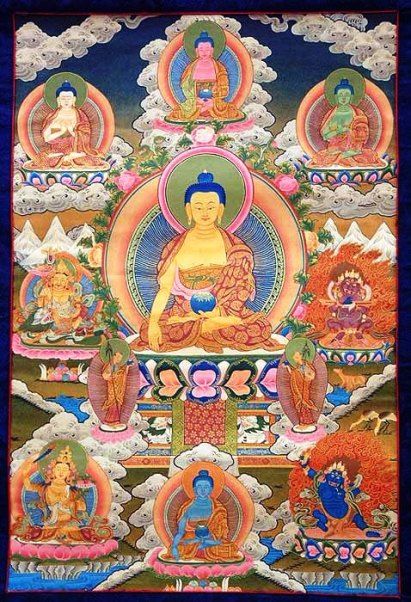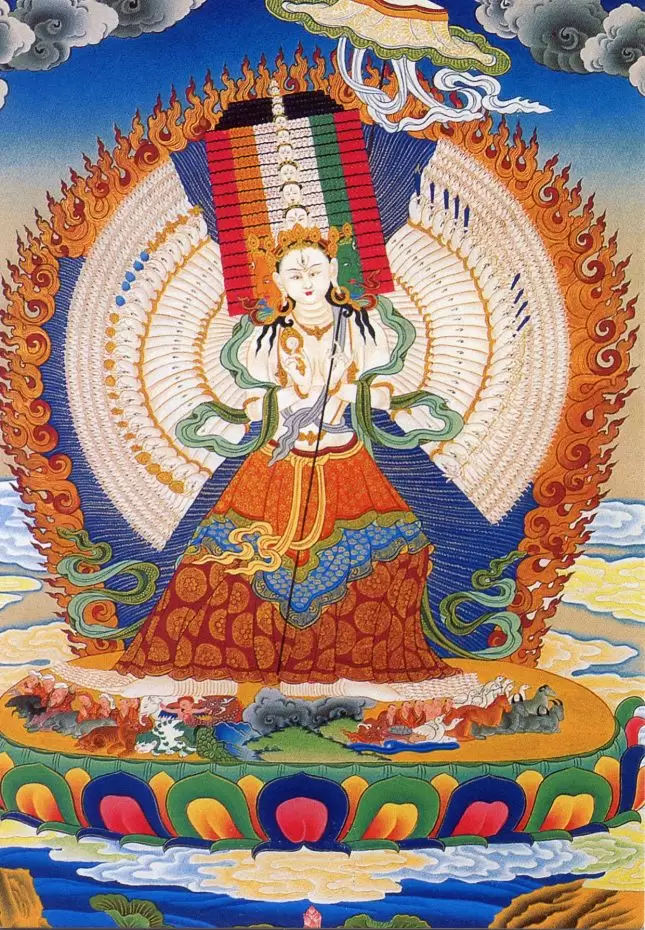Today in this article we will tell you about major gods of Buddhism religion. Bodhisattva is an important concept in Buddhism. This can be roughly understood as the attainment of a Buddha-like mindset. The most revered bodhisattvas considered deities are Avalokiteshvara, Manjushri, Vajrapani, Akashgarbha, Samantabhadra, Bhaishajyaraja, and Maitreya.
Traditionally motivated by great compassion, born of bodhicitta, one who attains Buddhahood out of an innate desire for the benefit of all sentient beings is considered a bodhisattva. According to Tibetan Buddhism, a bodhisattva is one of the four noble states attainable by humans in life.

Bodhisattva in Theravada and Mahayana Buddhism
Theravada Buddhism (the early school) and Mahayana schools of Buddhism understand the bodhisattva in different ways.
Bodhisattva in Theravada Buddhism: This refers to a person who has taken a spontaneous vow to become a Buddha, and such a person is also assured of the fulfillment of the vow by a living Buddha.
Bodhisattva in Mahayana Buddhism: It is a subject of devotion as Mahayana Buddhism exhorts others to follow the path of Bodhisattva as this school believes that every person has an inherent nature like Buddha and hence, Anyone can become a Buddha. Many Bodhisattvas have been envisaged in Mahayana. Bodhisattvas help those who walk the path of wisdom. The Bodhisattva path in Theravada (or Hinayana sect) is an alternative path for some, such as Siddhartha Gautama Buddha, it is the ideal path in Mahayana.
Avalokiteshvara
Avalokiteshvara is one of the three protective deities surrounding the Buddha, the others being Manjushri and Vajrapani. He is described as holding a lotus flower and is also known as Padmapani. His paintings can be found in the Ajanta Caves and he is the most accepted of all the Bodhisattvas. These bodhisattvas of compassion, heeders of the world’s call, who use skillful means to help people. He is known as Lokeswara in Theravada Buddhism in Cambodia. He is also depicted as a woman and is said to incarnate as His Holiness the Dalai Lama.

Vajrapani
One of the three protective deities surrounding the Buddha and also depicted in the Ajanta Caves. Vajrapani has all the powers of the Buddha as well as the powers of all the five Tathagatas namely Vairochana, Akshobhya, Amitabha, Ratnasambhava, and Amoghasiddhi.

Manjushree
One of the three protective deities surrounding the Buddha and also depicted in the Ajanta Caves. He is associated with the wisdom of the Buddha and is a male bodhisattva with a sword in his hand. Avalokiteshvara represents the Buddha’s compassion, Vajrapani represents the Buddha’s power and Manjushri represents the Buddha’s wisdom.

Samantabhadra
These are associated with practice and meditation. Along with the Buddha and Manjushri, he forms the Shakyamuni Trinity in Buddhism.

Kshitigarbh
He is portrayed as a Buddhist monk and has taken a vow not to attain Buddhahood until hell is empty.

Maitreya
The future Buddha who will appear on earth in the future will attain perfect enlightenment and teach the pure Dharma. Laughing Buddha is said to be an incarnation of Maitreya.

Aakashgarb
Associated with the element of space.

Tara
Associated with Vajrayana Buddhism and represents the qualities of success in work and achievements.

Vasundhara
Associated with wealth, prosperity, and abundance. These are popular in Nepal.

Skanda
Patron of Viharas and Buddhist teachings.

Sitapatra
He is regarded as a protector against supernatural danger. It is worshiped in both the Mahayana and Vajrayana traditions.

